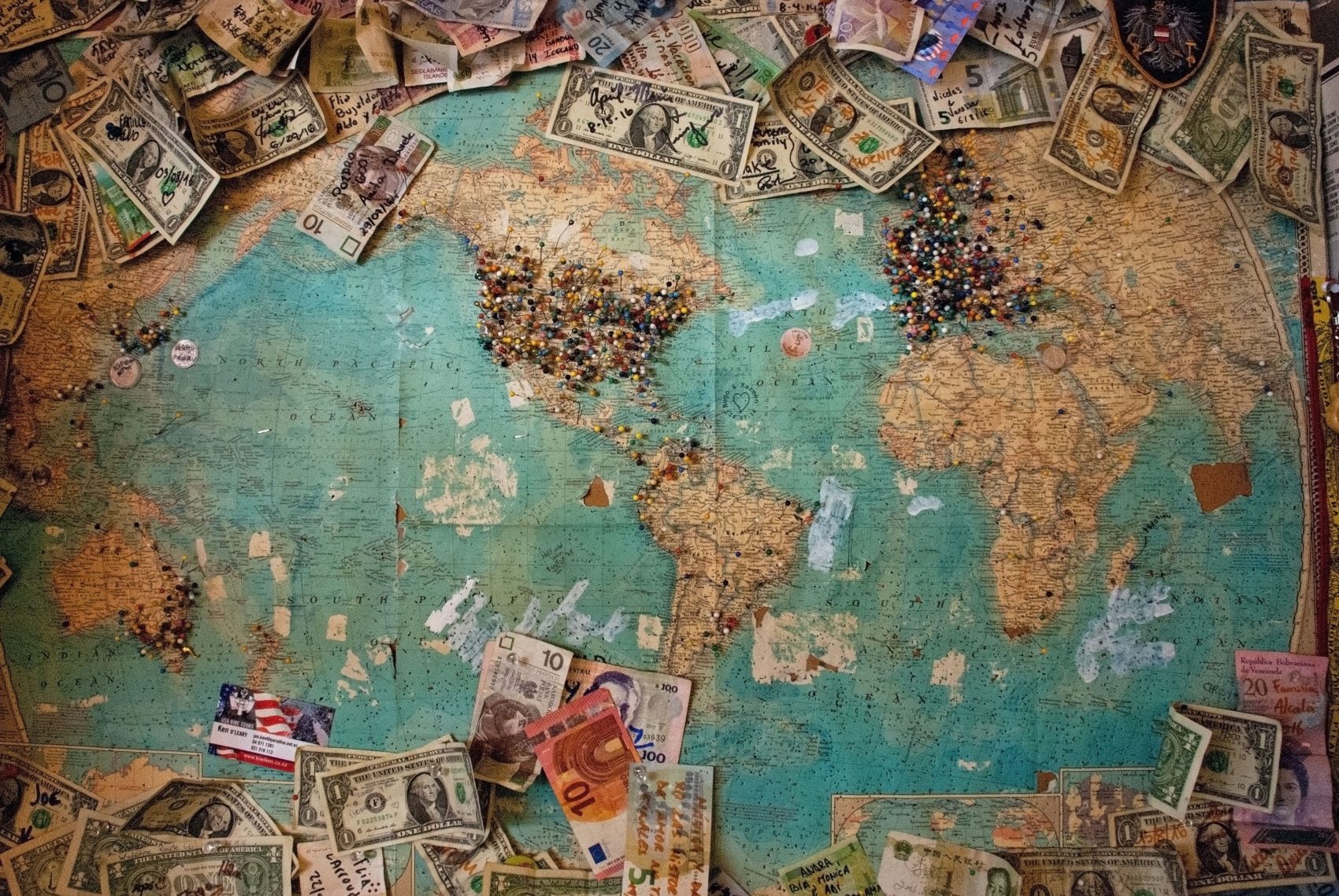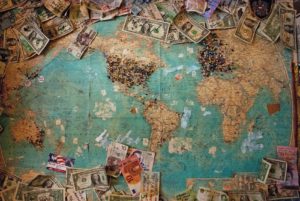Most Recent News


Popular News



One of the most overlooked area by preppers and survivalists alike: inflation. Learn about the savings tax and how to diversify.
There’s an interesting conundrum that appears when you’re trying to prepare for a disaster (“prepping”) with regard to money.
You need money to hedge yourself against the most common types of disasters. Things such as a loss of a job, a weather disaster, or a financial crisis.

In all of those cases, having a nest egg of money would be of paramount importance. It will tide you over until you get another job, repair the damages, or fend off the recession/depression.
But how do you save for money when that very same money is constantly decreasing in value?
If you keep hard currency, and the inflation rate is 3% – your money will lose half of its value in 24 years.
Inflation can absolutely devastate your savings. Especially in cases of hyperinflation, like socialist Venezuela.
However, if you don’t save money, you have no nest egg to ward off disasters.
This is the conundrum:
Which is, in fact, a prime purpose of inflation, as we’ll discuss below.
The entire point of inflation is meant to invoke a sense of urgency to spend. If your money is worth less in the future, it makes sense to buy now when it is worth more. A typical consumer sentiment.
Another topic which further complicates everything is that money, typical currency, has no actual backing. In the past, it used to be “commodity money”, where it was tied directly to silver or gold. Because the coins were minted using these metals.
Over time, this changed. With the rise of fractional reserve banking, the government needed more control over smoothing the economic issues that arose with bankers having 90%+ of their “deposits” loaned out for interest payments.
This lead to the rise fiat currency, or currency that has no basis in reality and is only tied to the government of its issuance and foreign trade. This is all modern day currency.
This currency has problems, mostly due to inflation. Since its worth is only determined by the individuals who use it, if the people who own it do not believe that this piece of paper will buy them something worthwhile or hold its value in the future. Then it plunges in value. This is hyperinflation. Some recent examples are Venezuela, Zimbabwe, Turkey in 2002, Bulgaria in 1996, and even Israel in 1984.
Now, inflation is controlled primarily by bankers. They set it at a rate that is slightly above the economic activity in a country, so there is a small degree of inflation to incentivize spending, as I mentioned above.
This is, in other words, a tax on savings.
In most modern countries, this rate is typically between 2% to 10% a year. That’s huge.
As mentioned above, at a rate of 3% (American standard) your money will lose half its value in 24 years. But what about at 6%? Then your money will halve in only a little over 11 years.
And this all depends on location as well. Inflation tends to hit rural areas less, cities more. Consider places like San Francisco versus rural Alabama—one costs much more to live in. The savings tax is not static.
So what do we do?
Well, we can’t put it all in stocks. This makes sense to beat inflation, but in the case of an economic downturn like a financial crisis (when you’ll need it the most), you will lose tremendous value. It’s not uncommon for stocks to drop 50% during financial collapses.
We can also store some of our money overseas in a different currency, for diversification. But how do you know which fiat to choose that will have more purchasing power than your own in the case of a downturn? You don’t. Even the Swiss franc isn’t tied to gold anymore, as of 2000.
Additionally, in the case of a downturn in the host country, you run the risk of losing your deposits. Many countries won’t see a big issue with the confiscation of foreign deposits when their local residents are starving and rioting.
There is also the option of a commodity. You can buy a metal such as silver, platinum, or palladium. These are easy to store, cannot be (directly) impacted by fiat inflation, and will certainly hold much more value than fiat currency in a downturn.
These aren’t infallible either, sadly. You can still get hit with a massive loss. If there is an economic collapse, the demand for these will decline greatly, causing the prices of them to drop.
But gold is an interesting one. Its value isn’t driven by demand per commercial enterprises, but rather by direct consumer demand. In time of economic prosperity, individuals want it for status. In times of financial downturns, people want it for its use as a mainstream financial instrument backup.
Gold is a great hedge against financial disasters, while still holding the inflation-resistant commodity benefit. It’s the perfect solution for those worried about hyperinflation: but I still wouldn’t go over 25% of your savings with it. It is not always easy to convert to other tradable instruments. And its only real use is in the event of a worldwide fiat collapse or nationwide hyperinflation. Even in a worst-case collapse, it wouldn’t be useful, because no one will want the rock if they are starving to death.
Beating inflation is not an easy task, especially with how each of these options has inherent risks attached to it.
But the key is diversification. Have some money in immediate liquid savings, such as a bank account to ensure you have the ability to meet short-term liquidity issues. Then keep some money in stock indexes to beat inflation. Then keep some additional currency in something like a commodity to resist hyperinflation. If you want to beat a strict one-sided currency collapse, diversify by keeping some currency offshore in foreign deposits.
The exact emergency money percentages of these depend, but as a general rule of thumb:
With this comes the caveat: don’t be stupid. Don’t advertise keeping money at your home and don’t keep stacks of gold there either. Get a security deposit box at a bank or find an appropriate manner to store it, such as a fireproof & immovable safe.
So the advice is generally the same as most financial advisors give, really. Keep the majority of savings in cash, stocks, and other easily liquid objects. The rest in “SHTF”-responsive instruments.
This is arguably the only method to hedge against inflation while also being precarious to the inherent risks with the other options. Diversification allows you leverage if only one or two of these areas are massively hit during a financial collapse.
Check out my next article in the Survivalism series:
(Learn More About The Dominion Newsletter Here)